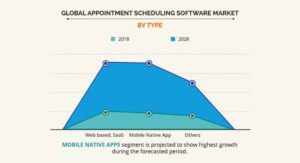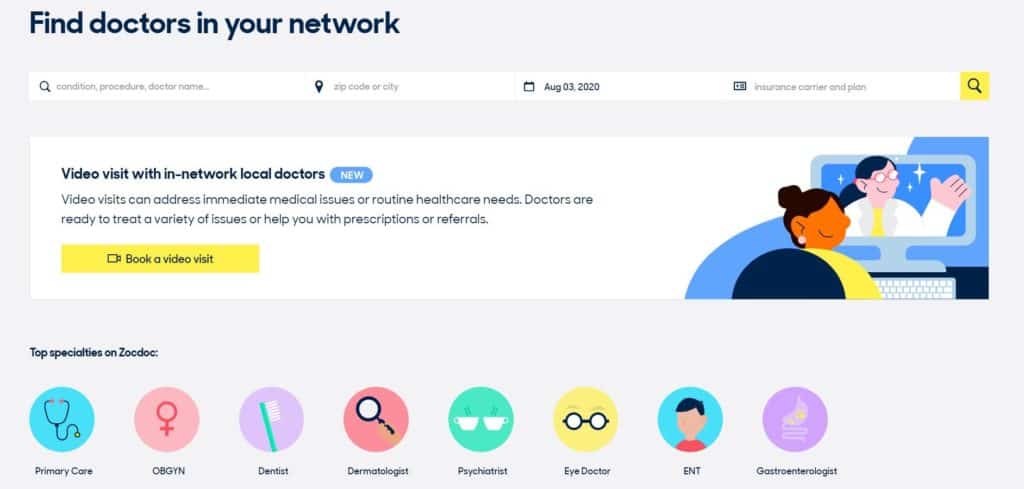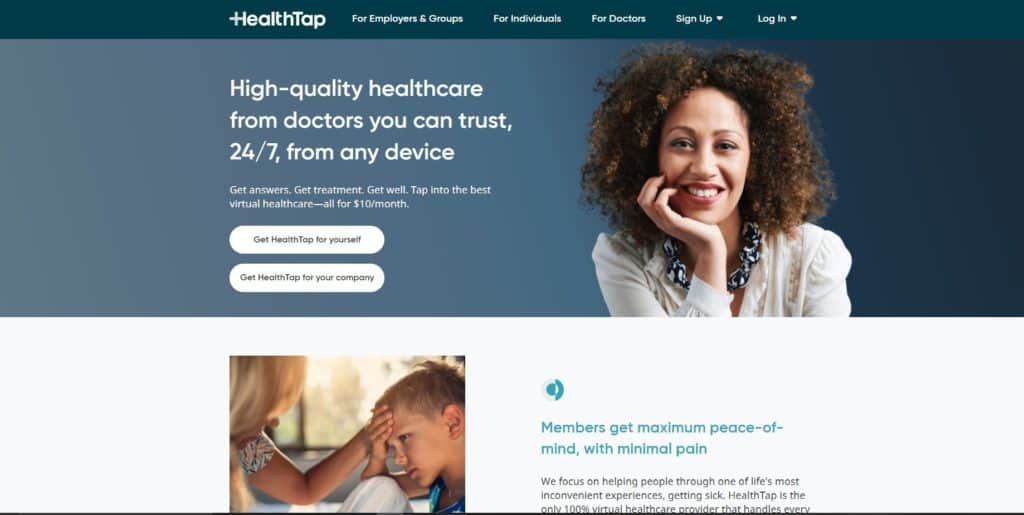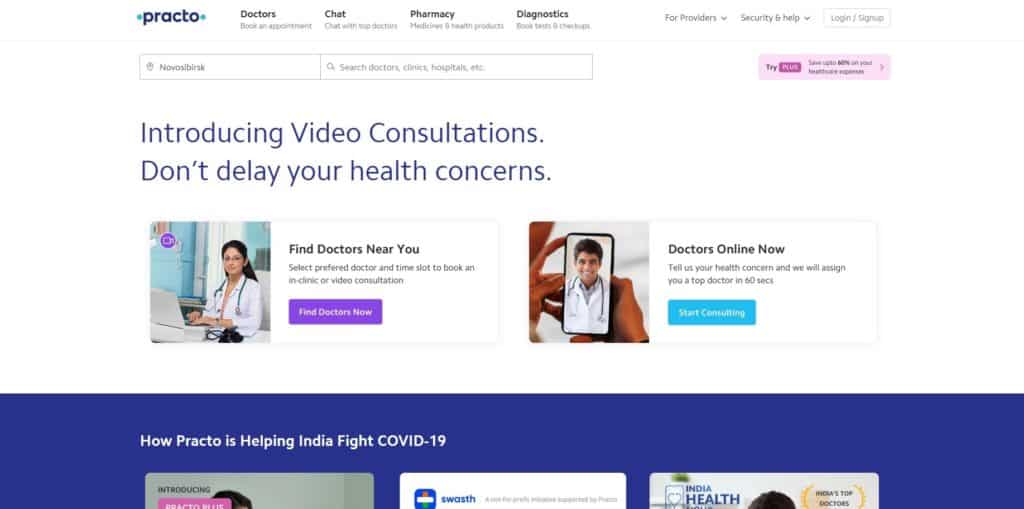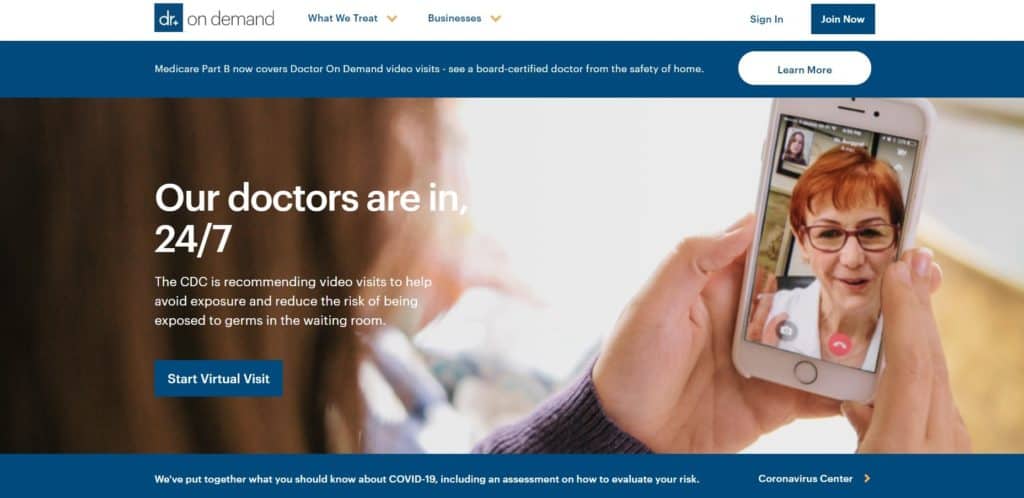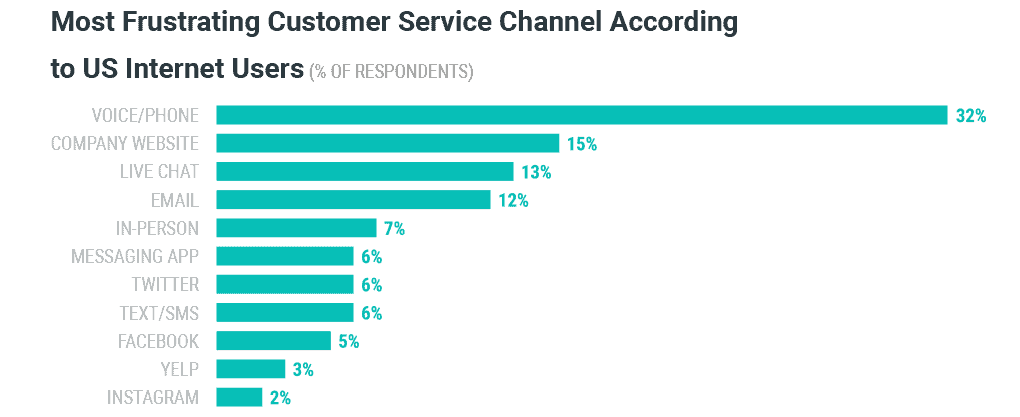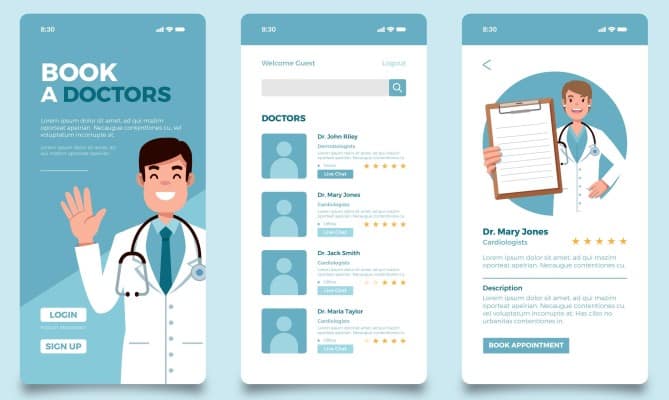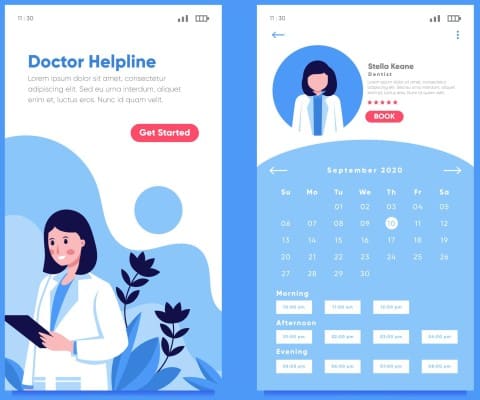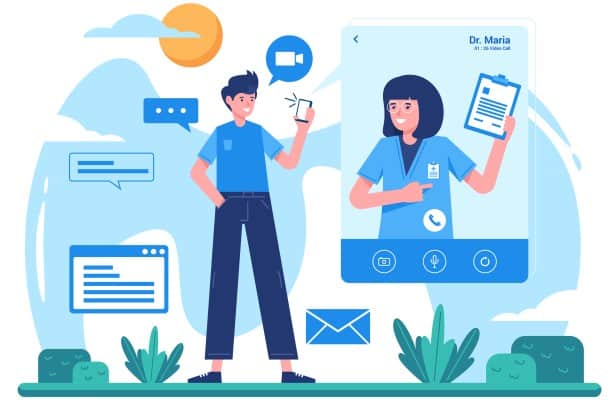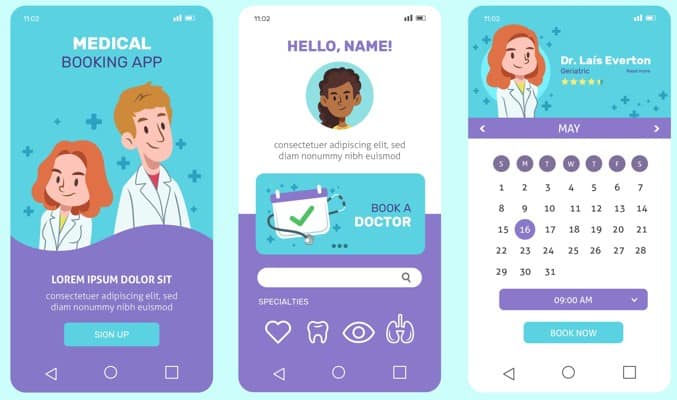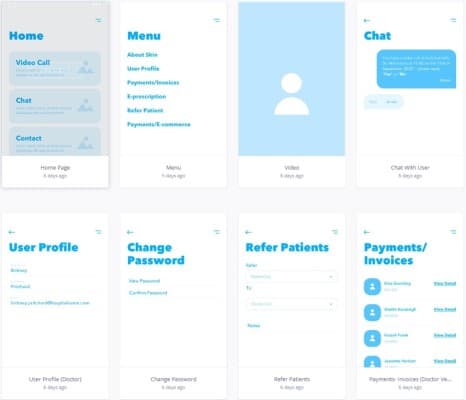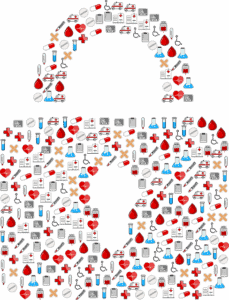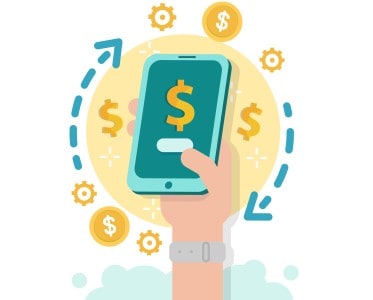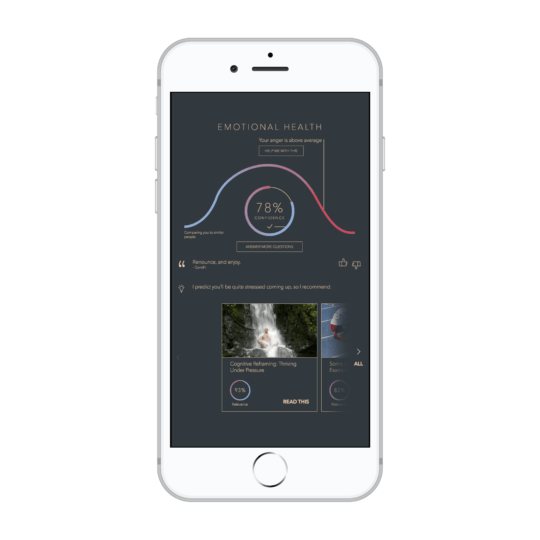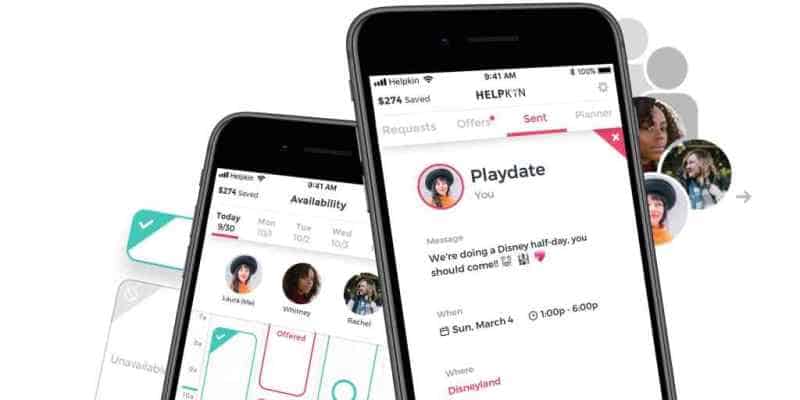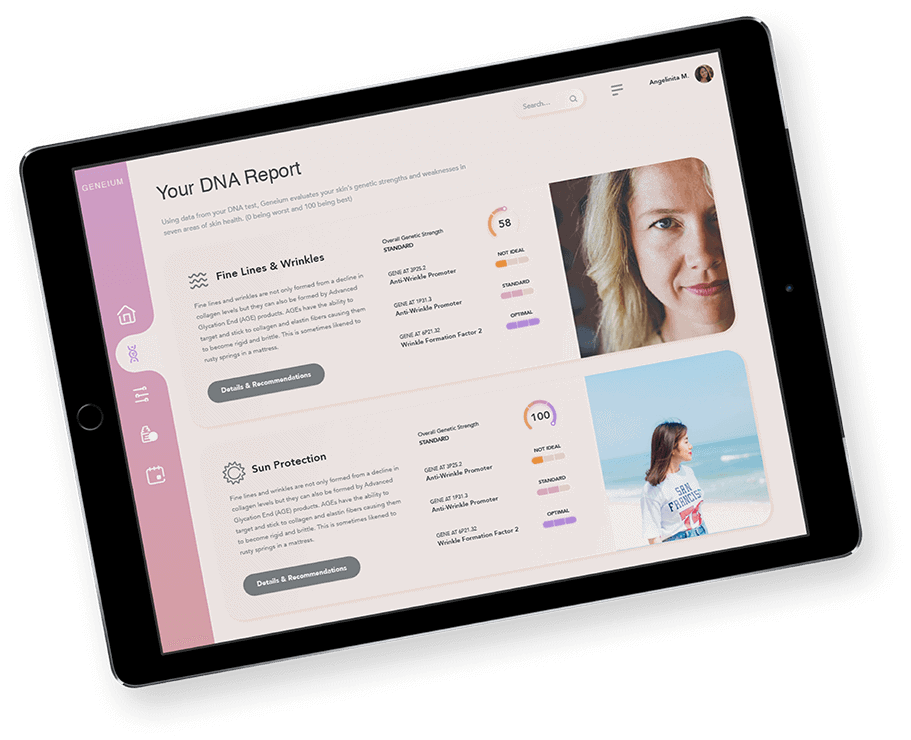According to an Accenture study, it takes on average eight minutes for a patient to schedule a doctor’s appointment through a phone call. What if we could do that as quickly as ordering an Uber or pizza and not have to spend another eight minutes if we need to reschedule?
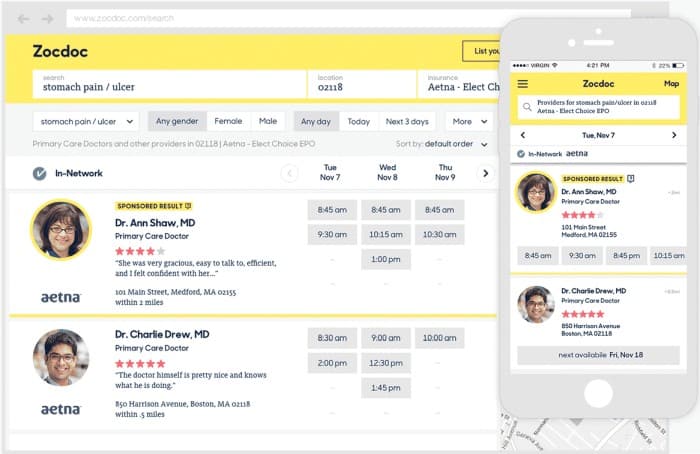
Fortunately, as the healthcare industry is adopting a more consumer-centric paradigm, we get more options to schedule our medical visits digitally, using doctor appointment booking apps. In this blog, you’ll learn everything you need to know about on-demand doctor appointment app development.
Table of Contents
- Benefits of Applications for Doctor Appointment
- Doctor Appointment App Features
- 7 Steps to Build a Doctor Appointment App
- Step 1: Get your doctor database ready
- Step 2: Verify a prototype
- Step 3: Review off-the-shelf scheduling tools
- Step 4: Code
- Step 5: Factor in HIPAA compliance
- Step 6: Test
- Step 7: Release and maintain
- Doctor Appointment App Development Cost
- Common Misconceptions About Doctor Booking Apps
- Our Experience in Doctor Appointment Booking App Development
- Afterword
Scheduling Software Market Overview
Let’s just say, there’s serious money at play in the app scheduling business. Research shows that the market will double within the next six years, reaching almost US $600 million by 2026.
What drives this phenomenal growth is web-based and mhealth appointment scheduling applications.
In addition to customers preferring mobile and web experiences to traditional face-to-face interactions, the COVID-19 pandemic only intensified the trend towards digital and mobile healthcare.
According to Accenture, 64 percent of US patients booked doctor appointments digitally in 2019. Of course, due to the COVID-19 related restrictions, the proportion of meetings scheduled via doctor appointment booking apps is bound to skyrocket in 2020.
Here are some key facts to consider when you envision developing an online or mobile doctor appointment booking app:
- Medical scheduling app market is growing at a CAGR of 37 percent in North America
- Advent of IoT, AI, and cloud technologies guarantees wider adoption of scheduling solutions
- Doctor appointments booking apps are the most effective and affordable option for healthcare companies of all sizes
- Proliferation of HIPAA-as-a-Service platforms make it easier to comply with the HIPAA regulations
- Location-based services are an integral part of doctor appointment apps, helping patients find nearby professionals
Explore the nuances of patient scheduling software development to build user-friendly solutions.
Top 4 Doctor Appointment Booking Apps on the Market
As you’re probably aware, proper research of competitors always helps to come up with innovative solutions. Here’s an overview of the popular doctor booking apps on the digital health care market.
Zocdoc
Founded: 2007
Headquarters: New York, NY
Funds raised: $223 million
Overview: ZocDoc acts as a marketplace for doctors and patients, helping the latter to find a doctor and schedule an online or in-person consultation.
Related article: How to Create a Marketplace App
Business model: [ZocDoc] generates revenue from multiple payment modes: by charging a subscription fee from doctors and offering them paid “Sponsored Results” in search. The service is free for patients to use.
Platforms: Web and native mobile apps for iOS and Android.
Notable features: ZocDoc uses AI to help patients find doctors with an appropriate specialization without using medical jargon.
HealthTap
Founded: 2010
Headquarters: Mountain View, CA
Funds raised: $88.3 million
Overview: HealthTap allows patients to schedule appointments with doctors and jump on a video call or go to a real-time chat.
Business model: The app features a prime service that’s available to patients on subscription. The company also offers a paid B2B telemedicine solution to doctors and a couple of other subscription-based products for employers and insurance companies.
Platforms: Online and dedicated mobile applications.
Notable features: HealthTap provides individual mobile apps for patients and doctors on iOS and Android.
Practo
Founded: 2008
Headquarters: Bengaluru, India
Funds raised: $251.2 million
Overview: Practo is the most prominent digital health player in the Asia-Pacific region, allowing patients to book a doctor’s appointment for an online or traditional consultation.
Business model: Similar to ZocDoc, Practo charges care providers and remains free to patients.
Platforms: Full web and mobile platforms coverage.
Notable features: Besides scheduling doctor appointments, Practo allows customers to order medicines & health products.
Doctor On Demand
Founded: 2013
Headquarters: San Francisco, CA
Funds raised: $239 million
Overview: Dr. on Demand is a telemedicine platform that offers on-demand and scheduled visits with US-licensed healthcare providers.
Business model: Dr. on Demand utilizes a flat fee based model. Patients pay a fix fee per doctor consultation.
Platforms: Web and native mobile apps for iOS, iPadOS, and Android.
Notable features: Doctor on Demand focuses on online doctor appointments.
Monetization models vary across these apps, with some using subscription fees while others rely on pay-per-use or sponsored results.
Read more about how to create robust on-demand doctor apps in our comprehensive doctor on-demand app development guide.
Benefits of Applications for Doctor’s Appointment
Why use an app to book a doctor appointment if a simple phone call can get you into a doctor’s room?
Well, it’s because when you call, an instant connection (if you don’t have to hang on the line) to a front desk doesn’t mean the scheduling part will be necessarily as quick. In fact, phone calls may be the most annoying customer service channel.
Let’s review the benefits that doctor appointment app development efforts can bring to patients and doctors.
Why patients love doctor appointment booking systems
As smartphones help us turn routine tasks like food ordering and taxi-hailing into engaging tap-tap-tap experiences, we’ve come to expect that from every service provider. And healthcare is not an exception.
Patients are turning into customers who no longer want to spend time on scheduling or rescheduling their doctor appointments. They want to quickly find specialists who can help them, read up on user reviews, and immediately set up an appointment.
Also read:
Women’s Health Tracking App Development
How to Make a Hospital Management Software
That already seems enough to encourage a care provider to build an app for booking doctor appointments. But patients’ benefits don’t stop there. Besides the convenience, patients get value from:
- Around-the-clock access to scheduling options
- Extensive directory of available professionals
- Automatic reminders and integration with their digital calendars
- Ability to submit any existing health-related docs before a consultation
- Secure payments via the app for patients
Why healthcare providers love doctor-patient appointment systems
Physicians benefit from reduced no-shows and better patient management through these apps.
Doctors have more than convenience on the line when it comes to online doctor scheduling app development. When businesses build apps for doctor appointments, they expect to cut operational costs and increase the overall number of visits.
Apps for scheduling can double as patient engagement software, helping providers improve communication and retention.
Here are some benefits that doctor scheduling apps bring to providers:
- Optimize the use of front-desk resources
- Reduce no-shows
- Improve health data capturing and reporting
- Streamline billing processes
- Increase efficiency and revenue
Also Read: A Complete Guide to Improving Patient Experience
Doctor Appointment App Features
To develop a doctor appointment booking app, you must carefully pick every single feature. A doctor appointment app development solution should prioritize user-centric features like secure scheduling, patient authentication, and seamless integration with EHR systems to improve patient care.
Let’s skim through the features that bring the most value in an appointment scheduling app.
Scheduling
Patients should be able to book a doctor’s appointment 24/7 — it’s the core of the product. With as few taps as possible, they should have an option to locate a free spot on a doctor’s calendar and book a meeting at a clinic or hospital.
The app can dynamically display available slots, making it easy for patients to book a convenient time.
Patient profile
Let’s not forget that a doctor should come to the meeting prepared. And the way they do this is by reviewing patient health and demographics data that users fill in their profiles. Robust authentication ensures that sensitive patient data remains secure. A secure patient portal development process can further enhance user engagement.
Doctor directory
Naturally, before an appointment, a patient should be able to choose a healthcare professional from all available candidates. Having reviews from previous customers would definitely help, so consider including these.
Patients can review doctors’ qualifications and specialties directly within the app, making informed decisions easier.
Smart search
Besides reviewing doctor profiles, patients should be able to search for professionals using their own words and apply filters, e.g., to find female doctors only. Smart filters allow users to search for physicians by specialty, location, or availability.
Payments
Patients should have multiple payment options to pay right through the medical consultation app. Allowing your patients to pay before the actual consultation can significantly improve your show-up rates.
Learn how to integrate a healthcare payment solution for seamless transactions.
Picking a payment gateway like Stripe seems a no-brainer, but you should carefully consider all options and weigh them against your target audience’s needs. Patients can also view and manage their medical bills directly within the app.
Doctor appointment apps require seamless integration, making customized mobile applications the right choice for development.
Reminders
Another way to reduce no-shows is the nifty notification feature. Users should get app reminders via push notifications, so they don’t miss an appointment or have enough time to reschedule.
Real-time chat
A chat can be used for customer support or for a preliminary (often remote) consultation.
That may be necessary when doctors need to find out more about patients’ disease history to provide as much value as possible during the meeting. Patients can discuss symptoms via chat before their visit, helping doctors prepare for consultations.
Document upload
Just like a pre-consultation chat, document uploading allows patients to submit their health data if they have it as MRI or CT scans. This medical imagery will help them get more value out of the meeting. Integrating electronic health records (EHRs) ensures seamless access to patient data during appointments.
Allowing patients to upload test results can streamline consultations and improve diagnostic accuracy.
E-prescriptions
Doctors should be able to prescribe medicines during the consultation. And patients should be able to review the prescription and get directions to where they can get the medicine via a doctor appointment booking app. Patients can receive e-prescriptions for medications and get notified when their prescriptions are ready for pickup.
Related: How To Integrate E-Prescribing Into a Medical Mobile App
Web dashboard for front-desk employees
A doctor appointment booking app is pretty much useless without a web dashboard where a healthcare organization can manage appointments, patients, adjust and track reminders. Such online applications should also include various reports that help identify overall scheduling efficiency.
Clinic Appointment App Development
Here’s one thing you shouldn’t miss when you build an app to make a doctor appointment — the providers’ side of an online consultation app. While it’s critical to hit the right chord for all user-centered features in a doctor search app, let’s also cater to care providers. How will professionals use the software on their end?
This has less to do with doctor appointment mobile app development and more so with online doctor appointment app development. Care providers will need an admin panel where they can see appointment requests, patients’ personal information, etc.
Such online applications should include a web dashboard with various reports that help identify overall scheduling efficiency. Let’s list a few key features you should include in an on-demand doctor application for a healthcare organization:
- manage online appointments
- edit patient details
- adjust and track reminders
- review real-time analytics
- project revenue
7 Steps to Build a Doctor Appointment App
The design and custom development of an online doctor appointment system is not a trivial task. Developing a doctor appointment app requires careful planning, from database preparation to maintaining compliance with sensitive healthcare regulations.
Here are our recommendations that will help you develop a doctor appointment app that will succeed. The process includes:
| Step | Description |
|---|---|
| 1. Get Your Doctor Database Ready | Prepare or integrate a reliable database of doctors via APIs like 1upHealth or BetterDoctor. |
| 2. Verify a Prototype | Create and test a clickthrough prototype with tools like Invision or Figma, incorporating feedback from medical staff. |
| 3. Review Off-the-Shelf Scheduling Tools | Consider APIs like Acuity or OnSched to simplify scheduling, balancing speed and UI customization. |
| 4. Code | Develop web and mobile parts simultaneously, using tools like React Native or Flutter for cross-platform development. |
| 5. Factor in HIPAA Compliance | Ensure data encryption, secure architecture, and adherence to HIPAA and other regulations. |
| 6. Test | Perform thorough QA testing, including stress, security, and unit tests, to validate app functionality. |
| 7. Release and Maintain | Launch the app on stores or servers, and update regularly based on OS changes and user feedback. |
Read more about Healthcare App Design
Step 1: Get your doctor database ready
If you think of it, the development of a healthcare app is akin to on-demand doctor app development. From the user’s standpoint, what you offer is a marketplace, and doctors (and their services) are the product. And the way the user orders a product is by doctor appointment scheduling.
So, the first thing you need to do is ensure you have the product. If you are working with a specific clinic, do you have a database of doctors? Will you be able to access it via APIs?
You might want to explore publicly available doctor databases and APIs:
- 1upHealth
- Doctor.com
- BetterDoctor
- Doctor Database
Step 2: Verify a prototype
Once you have decided on the app’s data sources, the next item on your doctor on-demand app development agenda is a prototype. You need to develop the visuals of all screens in the app and verify its features with a clickthrough prototype.
Please note that the driving force for UI/UX iterations should be the feedback from your medical staff and test users. Make sure to bring in qualified personnel to verify online doctor consultation app development from the providers’ side.
You will need a prototyping instrument at this stage. We prefer to use Invision, but you are free to choose from many other prototyping tools, for example:
Step 3: Review off-the-shelf scheduling tools
When you create a doctor scheduling app, the most time-consuming chunk will be developing a scheduling engine. That’s if you build it from scratch. A better option, however, is to pick an off-the-shelf scheduling API like those provided by Acuity, Timekit, or OnSched.
Using these or similar APIs, you can significantly speed up the custom mobile app development process, but mind that this choice will influence your UI. The thing with scheduling APIs / SDKs is that they don’t provide too much flexibility with the look and feel of a calendar.
That’s not to say, though, that you can’t use these tools to make your app look unique. It’ll just take more than a simple plug-in integration.
You are welcome to check out more plug-and-play solutions to accelerate your app development.
Step 4: Code
The boring stuff still needs to take place for your appointment app to materialize. As for us, we love that part, and we know how to turn it into a captivating experience for you too. Our development team moves with quick iterations and keeps the coding process entirely transparent for you by holding regular meetings. That way, you can easily track the project’s progress and make all the right calls in time.
Since you’ll need to code the web and mobile parts of your doctor booking app, we advise that you do this in sync to avoid prolonged code refactoring later on. In the process, your software development team will not only code the medical staff scheduling software but also build APIs to integrate the app with medical records.
If you want to build doctor appointment app for Android and iOS, using cross-platform development tools like React Native or Flutter will help you optimize the budget.
Step 5: Factor in HIPAA compliance
Apps must implement encryption to safeguard sensitive patient information.
As you continue to create a doctor appointment app, make sure you build it using a secure architecture aligned with the HIPAA regulations, especially HIPAA compliant video conferencing and messaging. Some of the things you need to consider:
- PHI data encryption
- SSL connections
- HIPAA-as-a-Service cloud platforms
- HITECH Act, GDPR, and other regulations
Authorization protocols must be implemented to protect access to sensitive healthcare information.
Related: How to Build a HIPAA Compliant App Development
Step 6: Test
Of course, you can’t make a doctor booking app without testing it thoroughly. In real life, the quality assurance phase begins simultaneously with coding and follows every development sprint. However, final testing covers all app functionality and includes such things as stress testing, security, and unit tests.
Related: The Complete Guide to User Testing: Steps, Tools, Best Practices
Step 7: Release and maintain
And the last step is releasing the app so that users can make a doctor appointment. However, adding mobile apps to app stores and moving the web dashboard to a “live” server, e.g. on the AWS (Amazon Web Services) environment, is not the end of the story. A successful app launch is only the beginning; continuous updates are essential for long-term success.
You will need to update the app regularly to support new mobile OS versions and enhance its functionality, depending on the user feedback.
As you can see, the design and development of online doctor appointment system can be quite tricky, and it’s advisable to consult with experts before starting such a project.
Doctor’s Appointment App Development Cost
The cost of building an on-demand doctor appointment app may vary from $54,000 for an MVP to $84,000 for a full-fledged doctor appointment booking system. The latter variant would include mobile apps and a web dashboard for medical staff.
Again, to warrant that every invested dollar contributes to a higher ROI, resort to ready-made scheduling components. A chat is another feature you can implement using third-party SDKs, which will also help you slash the development budget.
You may also opt for a cross-platform development approach, using such tools as React Native, to keep the app development cost on the lower end. How long it takes to develop the app will completely depend on specific features and functionalities you stick with during doctor appointment application development.
Read Also: React Native vs. Swift
Common Misconceptions About Doctor Booking Apps
When you start researching the topic of doctor booking app development, you’ll be surprised by the discrepancy of views on such apps out there. The reason is that appointment scheduling apps are still a growing trend, and not every development company can boast hands-on experience creating such appointment management systems.
So they describe a bunch of features that belong to an entirely different category of healthcare apps. Here are some red flags that immediately give away the lack of expertise in developing doctor appointment apps.
Telemedicine
When people casually talk about adding such telehealth features as a video or audio chat to an appointment scheduling app, they don’t fully understand what that entails.
Let’s just say that a telemedicine app that offers video calls is a thing of its own, and adding this “feature” to your app can ramp up its cost by $59,000, minimum. How would you like that?
Related: Telemedicine App Development: The Complete Breakdown
Drug reference
Many blogs mention another useful feature: drug reference manual. And while this feature is not that heavy on the budget ($15,000-$20,000), we struggle to justify its implementation in an appointment app.
Think about it: The main purpose of developing such healthcare apps is to set up a doctor’s appointment and not educate patients on medicine. As a side note, did you know that up to 80% of app features remain unused?
Chatbot
A chatbot sounds like a legit option for a doctor booking app, right? Well, let’s ponder why people choose such apps over scheduling a meeting over the phone. It’s to avoid waiting on the line and all the back and forth with operators, right? Patients just want to lock in a date and time and be on their way, without ever dialing a phone number.
Can you imagine a chatbot that is simpler than tapping an empty cell in a doctor’s timetable? I can’t either. Even with template answers offered by a chatbot, a doctor chat app seems a little overkill.
Related: How to Develop a Chatbot for Your Business, Guide to Building a Mental Health Chatbot
Our Experience in Doctor Appointment Booking App Development
While we haven’t worked on a standalone doctor booking app yet, we’ve worked on several apps that include a scheduling component and a couple of healthcare apps with specific patient-doctor scheduling features.
Helpkin
Helpkin is an on-demand babysitting app that allows friends to coordinate and trade their free time to help each other. Naturally, the scheduling component with timetables is a crucial part of the experience. And we’re proud to report that our UI\UX design and development efforts were not in vain: This client’s app has been recently acquired by Wana.
Genium
Genium is a dermatology app that provides users advice on skincare based on our customer’s DNA interpretation medical services. One of the options that’s going to be available to patients is scheduling an appointment with a dermatologist. This feature is going to integrate with the on-device calendar as well.
Choosing the right doctor appointment app development company is crucial for ensuring your app meets industry standards, including HIPAA compliance and secure payment processing.
Afterword
We hope we’ve shed some light on things you need to consider when making a medical appointment solution. We’ll answer some of the common questions we get about this topic in the FAQ below, but please reach out with any specific questions, e.g., how to integrate with voice assistants like Siri or Alexa. We’ll be happy to take you on this exciting journey. Because the time to build an application for doctor appointment is now!
Related Articles:
- How to Build a Healthcare Application
- How to Create a Telehealth Application
- How to Start a Healthcare Startup
- Medical Website Development Guide
- How to Make a Pharmacy Application
- How to Develop EHR/EMR System
- How to Build a Mental Health App
- How to Develop a Hospital Management Software
- How to Make a Medical Billing Software
If you’re ready to build an app to make doctor appointments seamless for both patients and providers, consult our experts for guidance.
[This blog was originally published in August 2020, but has been updated with more recent information]
FAQ
How long does it take to develop a medical appointment booking app?
Between two and four months, from prototyping and designs to uploading a customer-ready app to app stores and deploying a web dashboard to a production environment.
What tech stack do you recommend for creating such an app?
We prefer working with React.JS, Node.js, and React Native to accelerate time to market for iOS and Android apps. However, depending on the peculiarities of your app (e.g., advanced animations, etc.), we might need to stick with native development using Swift and Kotlin. For the server side, you can choose a suitable option from Microsoft Azure, Google Cloud, or AWS.
What is the ideal team composition for building a medical scheduling app?
A full-stack web developer for building a dashboard; 2 mobile developers for creating iOS and Android apps; a designer and QA engineer; plus, a project manager to keep you up-to-date on the progress.
How do I know if my healthcare practice is ready for a healthcare appointment app?
When you get more calls than your staff can handle or when you’re a bit short-handed.
How much does it cost to develop a doctor booking app?
From $54,000 (MVP) to $84,000 (a full-fledged booking solution).
Can I make a doctor appointment app work with other medical software like EHR/EMR?
Yes. Most EHR platforms offer APIs that we can utilize to connect your scheduling app with them.
